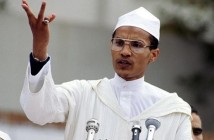A reform process is underway, but while the politicians welcome the constitution, protestors think differently
Piecemeal, incomplete, hailed as revolution without the violence, the reforms underway in Morocco are under the microscope, and leave opinions divided.
The word ‘sacred’, always used in conjunction with the king, was often cited when locking up prisoners. This word has vanished from the new constitution drawn up by a commission created by King Mohammed VI, no longer considered a ‘sacred’ person.
But if article 23 has been suppressed, what replaces it is still heavy with meaning: “The king cannot be held responsible, and his person is unimpeachable.” And therein lies the ambivalence of recent reforms.
The status of the prime minister has been upgraded, now called head of government and responsible for picking his own team, where previously this had to be approved by the king. The Berber tongue, Amazighe, has also been made an official language.
Aside from far-left politicians like Annahj Addimocrati and the Unified Socialist Party, or Islamists such as the group around Cheikh Yassine, all the major parties have welcomed the constitution, claiming that the reformers’ demands have been met.
A moderate Islamist parliamentarian from the ruling coalition Istiqlal said, “These reforms have gone beyond what we were hoping for.” Same from the Parti de la Justice et du Development.
The 20 February movement, behind the protests that have shaken the country over the past few months, has been less acquiescent. It says it will not participate in the ‘masquerade’ of the referendum at the end of July, claiming its demands have not been listened to, in particular the separation of powers, which has not been included in reforms.
Morocco’s protests have been of a different nature to those of its neighbours: the fall of the King and end of the monarchic regime have not been the main demands, which have been of a more economic, social and constitutional nature.
The hope is to transform Morocco into a parliamentary monarchy, end corruption and bring social justice to the country. The beatings handed out by police to protestors in May could signal a change of direction.







